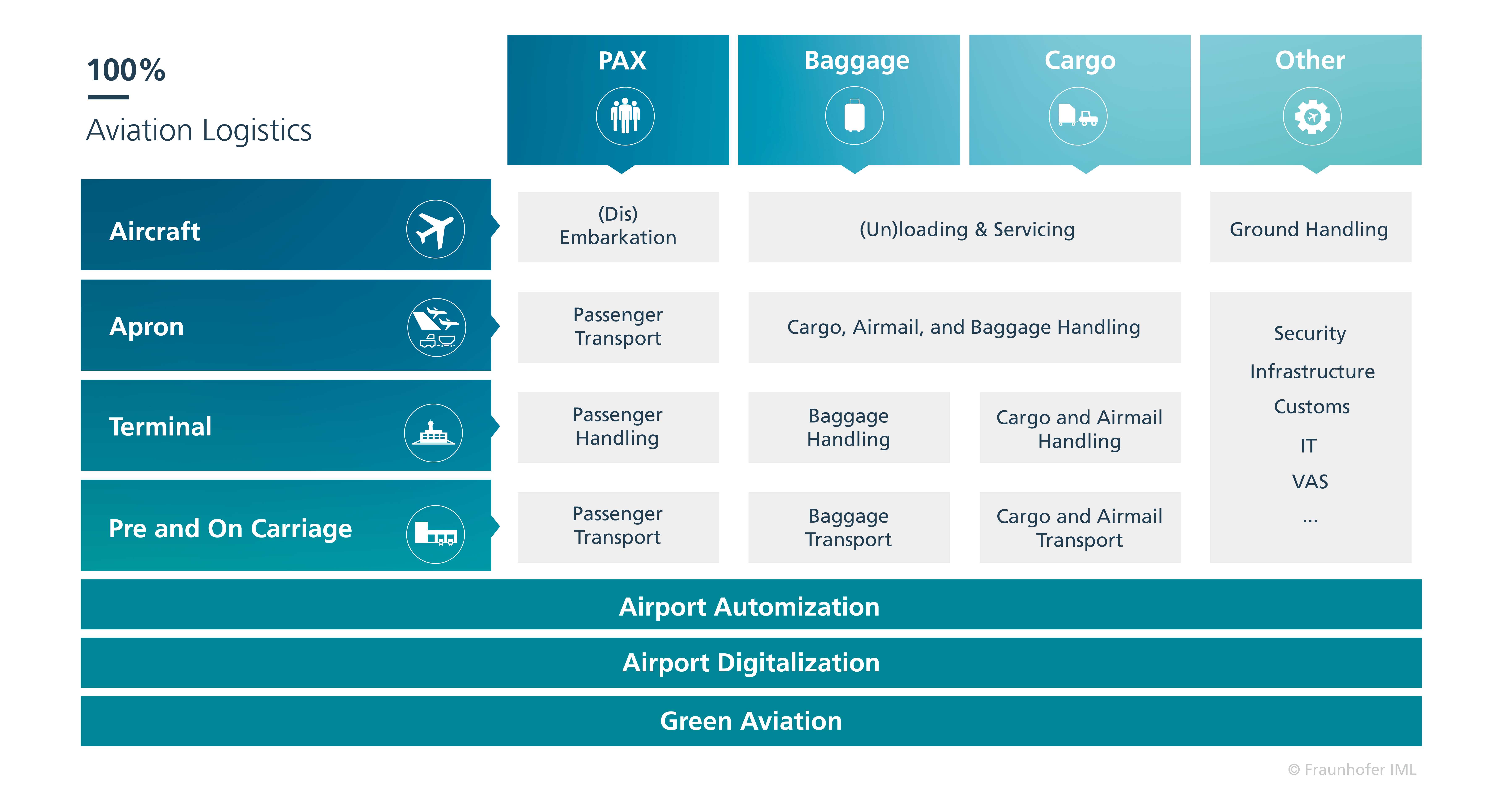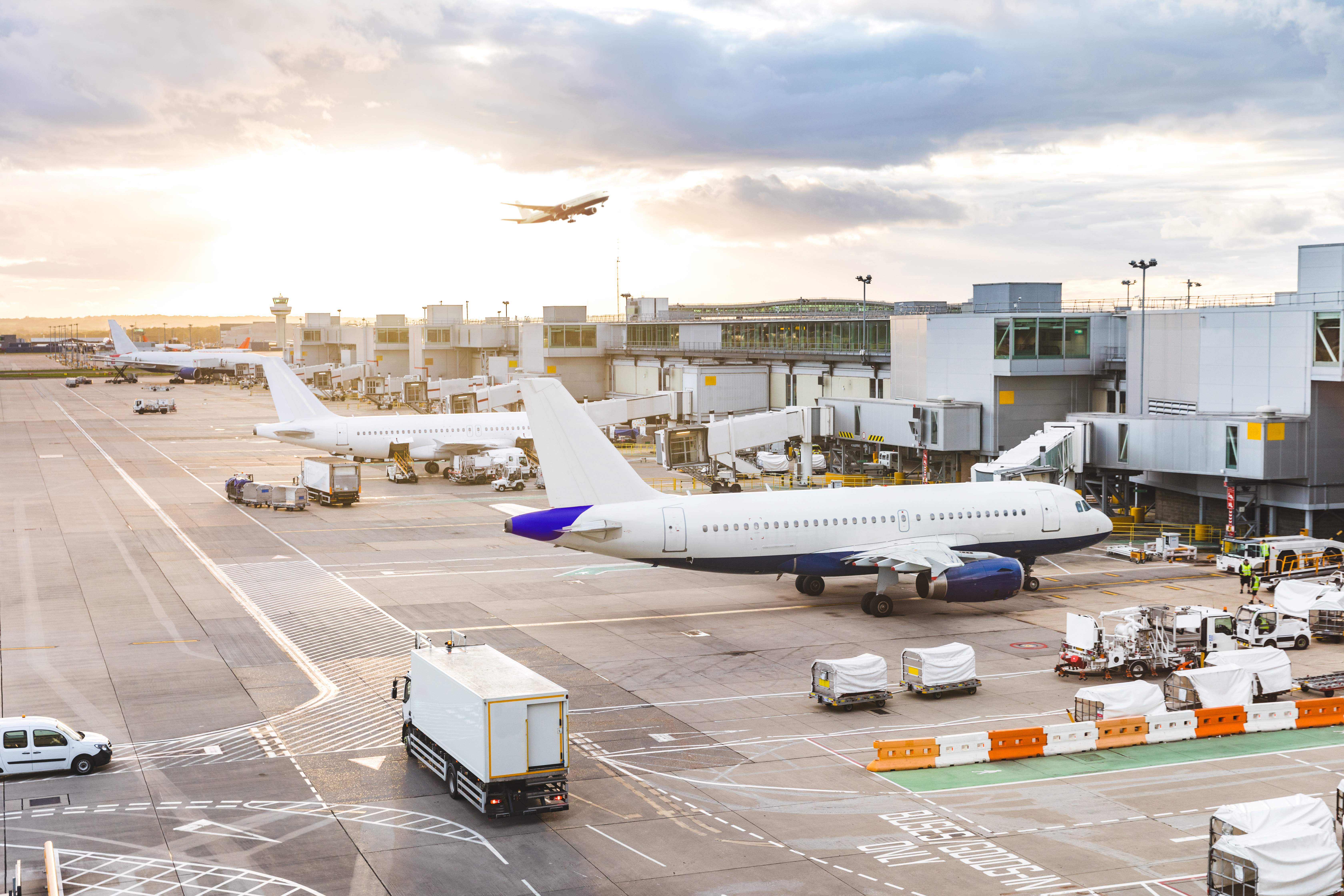Over the past 35 years, the Department of Aviation Logistics has consistently achieved the successful completion of over 130 industrial and research projects across the world, spanning Germany, Europe, North America, and beyond.
Our diverse customers include stakeholders such as airport operators, air freight forwarders, airlines, handling agents, aircraft manufacturers, real estate developers, and public funding agencies.
Bearing a wealth of industrial expertise and an in-depth understanding of aviation logistics, especially within cargo operations, we have established ourselves as leading authorities in the realm of air transport logistics. Being part of the Fraunhofer Gesellschaft, encompassing 76 independent institutes and a workforce of around 32,000 professionals, allows us to seamlessly blend aviation-specific insights with knowledge from kindred industries. Our collaborative efforts with other departments and institutes facilitate the cross-pollination of ideas, channeling successful concepts and pioneering technical solutions into the domain of aviation logistics and its interconnected spheres.
As a recognized contributor, we take pride in being a primary source of applied research throughout Europe. Our approach centers on a methodical and goal-oriented deployment of innovative methodologies, tools, and technologies, all tailored to the intricate landscape of aviation.
Aviation Logistics

Other Services
The Aviation Logistics Department specializes in planning, consulting, and executing air transport projects. Collaborating with research and industry partners, our focus is on implementation industry-oriented concepts.
In addition to industry projects, we have a broad reach participating in German and European funded projects.
Take a look at our current and past work on diverse topics and stakeholders.
Downloads
As part of our research work, at Aviation Logistics we do scientific research and participate in industry events and conferences.
Download our latest scientific publications & aviation logistics studies and check out our open-source software.

 Fraunhofer Institute for Material Flow and Logistics IML
Fraunhofer Institute for Material Flow and Logistics IML



